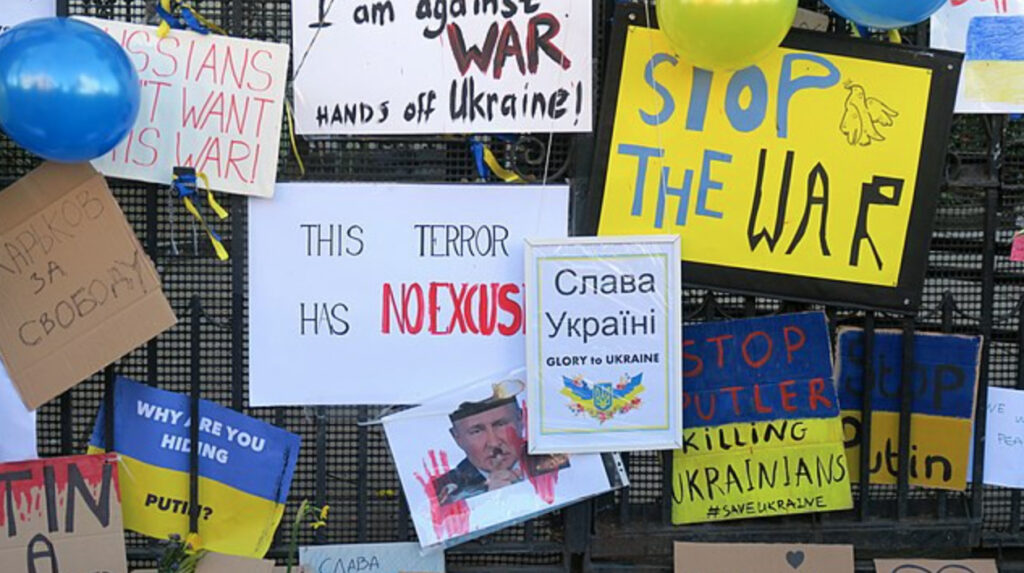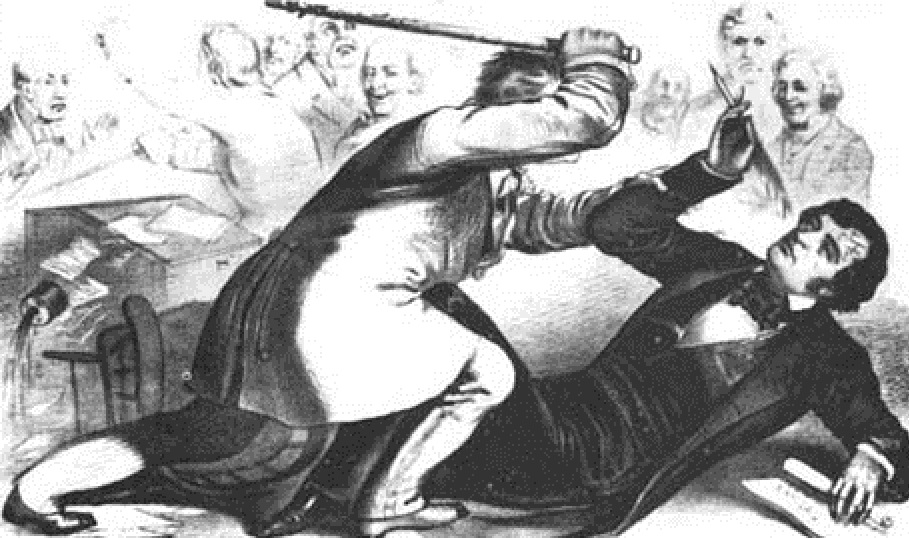On Mar. 17, 2023, the International Criminal Court issued an arrest warrant for Russian president Vladimir Putin accusing him of war crimes involving the abduction and deportation of Ukrainian children to Russia. For months, thousands of Ukrainian children have been abducted to become Russian citizens.
Human rights groups argue that this systematic resettlement is part of a broader effort to make Ukraine a part of Russia without territorial conquest. The Russification of Ukrainian children physically takes children out of their homes while mentally shaping their identity from Ukrainian to Russian.
The kidnapping is a microcosm of the ongoing war between Russia and Ukraine. While territory and sovereignty are at stake, so are identity and history.
Glimpse from the Globe sat down with Douglas Becker, a professor of international relations at the University of Southern California and a historical memory scholar, to discuss the importance and complexity of historical memory in this war.
–
Q: What is Historical Memory, and how is it different from history?
A: History is telling a narrative of the past; memory is the filtering of that narrative for contemporary purposes. It’s the way in which people reading history will remember that history, whether they lived through it — a distinct personal memory — or it is filtered and negotiated by the historians or very much by political and social actors.
Q: Would you say that, in this case, Russia and Ukraine have shared histories but differing historical memories?
A: Well, they definitely have histories that intertwine, but you used the word share, and that’s complex. The notion of a shared history is decidedly Russian. The idea is that Russia and Ukraine are intertwined so much so that many Russians consider Ukraine to be “‘Little Russia.’” Ukrainians push back pretty directly on that notion of a shared history. They would rather agree on the idea of an intertwined history. Increasingly that narrative is taking on a colonial form. So Ukrainian history and identity are forms of resistance to the Russian narrative.
Q: So, are these conflictual views an example of a difference in historical memory?
A: That’s part of it, but memory is a little more complex than that. Think of the Hollywood trope where the same event is viewed from multiple perspectives and perceptions of what’s happened. There are all of these elements of history, but memory might isolate one of these factors or arguments.
Q: American news coverage tends to focus on tangible explanations for this war. Since memory is so intangible, how much of this war would you say is based on a difference in historical memory and identity?
A: I actually think that there has been a lot of conversation about identity because there’s been terribly little emphasis from an IR perspective, from a traditional realist perspective, on resources. The question then is, how much of identity is tied to history and memory? Memory scholars like myself understand identity as not static but rather flexible, organic and developing. President Biden and the United States tend to focus on protecting Ukraine as a democracy from an authoritarian state. They’re not citing history and historical memory as much — Ukrainians will. A better way of putting this is Ukrainians telling Putin, “you’re trying to implant your memory in my head.”
Q: Would it be fair to say then that the war is both a territorial attack and an attack on Ukraine’s memory and identity?
A: Yes, and you can’t unlink the two. What’s driving Russia at this point is a desire to annex Ukraine or ensure that the Ukrainian government is always compliant with the Russians to create, in essence, a puppet state. What becomes the means by which to ensure you win the war would have to be some memory discourse where Ukrainians will accept the Russian role because of the notion that we are all the same nation.
Q: Earlier, you mentioned that memory discourse could be used for political gain. How does that affect how leaders approach policy?
A: It must. One issue I constantly wrestle with is the leaders choosing these memories based on what they want to accomplish — memory is a tool to get a policy outcome that they want — and how much of it has to do with the leaders’ own memories and beliefs. How much are issues driven by memory, and how much is instrumental? What Putin is doing in Ukraine clearly has a degree of instrumentality.
Q: So because this war is largely based on memory and identity, it becomes all that much harder to resolve?
A: Absolutely. How do you compromise your identity? How do you compromise your memory? When a conflict is over memory as opposed to over territory or resources, it is so much harder to resolve. As conflicts become increasingly about identity, all negotiation techniques fail. Memory battles tend to be existential battles. How do you negotiate wars where if you lose, you lose your identity? It makes these wars more difficult to resolve, and I become all the more pessimistic about the possibility of a resolution.
–
As the Ukraine and Russia war drags on, the stakes expand beyond territory and become more and more existential. Historical memory discourse provides an explanation and analysis of how or if the conflict will be resolved. As time goes on, it becomes less and less likely either side will be willing to lose their identity and memory to negotiation.







